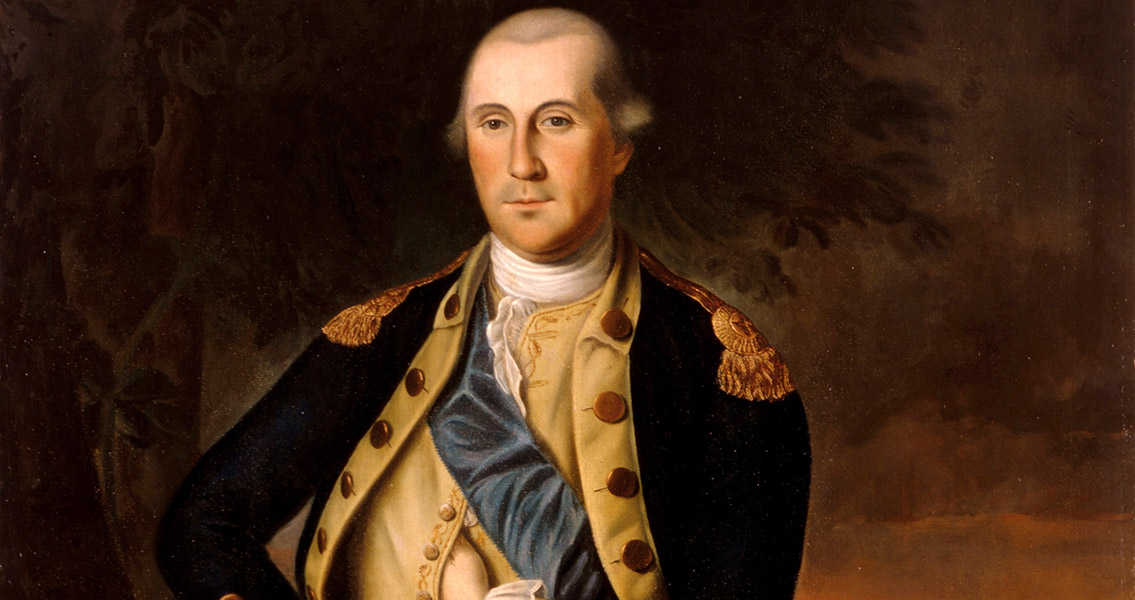<![CDATA[Fighting in the Revolutionary War had been over for almost two years, the Continental Army was close to demobilising and independence for the United States had been all but won. Yet on 14th March, 1783, George Washington and the newly established Congress faced one of their gravest threats, not from the colonial forces of Britain, but a conspiracy within the United States' own armed forces. John Jay, Benjamin Franklin and John Adams were in Paris, France, negotiating the treaty which would formally bring to an end the American War of Independence. By Spring 1783, reports from the negotiators were positive, indicating that a deal securing the creation of the United States of American would soon be finalised. Nevertheless, the Continental Army had been ordered not to stand down. British forces remained in New York and in western outposts, and the army had to ensure the USA's new territorial gains remained defended. Troops became frustrated with boredom and exhaustion in the wake of the long standing war, restless to return to their homes. Long held resentments came to the fore in the increasingly toxic atmosphere, culminating in a conspiracy against the civil government, and George Washington himself. At the heart of the soldiers' anger were severe delays in pay. Congress had made promises during the war in a desperate bid to raise an army, which it could no longer meet. In particular, salaries to the soldiers had failed to be paid, and promises of life long pensions to anyone fighting in the conflict seemed increasingly without foundation. Its own constitution was in many ways proving Congress' undoing. Put simply, the new civil government was unable to raise the funds it needed from the states to pay off the debts it owed to its military. So desperate had the situation become for some officers in the Continental Army that the eventual demobilisation carried the very real threat of debtors prison. The soldiers had foregone managing their own finances to fight in the war, as well as donating substantial sums to the Patriot cause. If they didn't receive the compensation they had been promised, many would return home to a life of debt and poverty. The situation finally exploded in March 1783, as officers in the Continental Army stationed at Newburgh, Connecticut, started calls for a revolt. A letter was circulated among officers, calling for a meeting on the 10th March. It suggested that when peace was declared, the army should refuse to lay down its arms until it had received the compensation it was owed. In the event that the meetings in Paris failed to acheive peace, the soldiers would disarm, allowing Britain to take control of the colonies once more. One of George Washington's closest former aides, Alexander Hamilton, had been contacted by the leaders of the conspiracy in February, and he quickly wrote a letter to Washington warning him of the potential coup. Although initially skeptical of the size of the threat described by Hamilton, Washington eventually responded, issuing a statement prohibiting any unsanctioned meetings and calling for a meeting of officers on 15th March. Washington is reported to have given one of the most powerful speeches of his career to the officers who assembled on 15th March, and certainly one of the most important, preventing an internal coup which could have been just as devastating as anything threatened by the British. "Let me entreat you, gentlemen, on your part, not to take any measures, which viewed in the calm light of reason, will lessen the dignity, and sully the glory you have hitherto maintained" Washington said in the opening to his speech, "let me request you to rely on the plighted faith of your country, and place a full confidence in the purity of the intentions of Congress." Many accounts say that Washington's speech moved some of the attendees to tears. In particular, they highlight Washington having to wear reading glasses in public for the first time, "Gentlemen, you must pardon me. I have grown old in the service of my country and now find that I am growing blind.", as a moment which brought home the huge sacrifices the hero of the Revolutionary War had made in the name of US independence, setting a powerful example with his continued loyalty. Support for the Newburgh Conspiracy quickly disappeared following Washington's speech to the assembled officers. A military revolt against the civilian government which could have devastated the fledgling USA, had been averted. ]]>
George Washington Takes On The Newburgh Conspiracy
